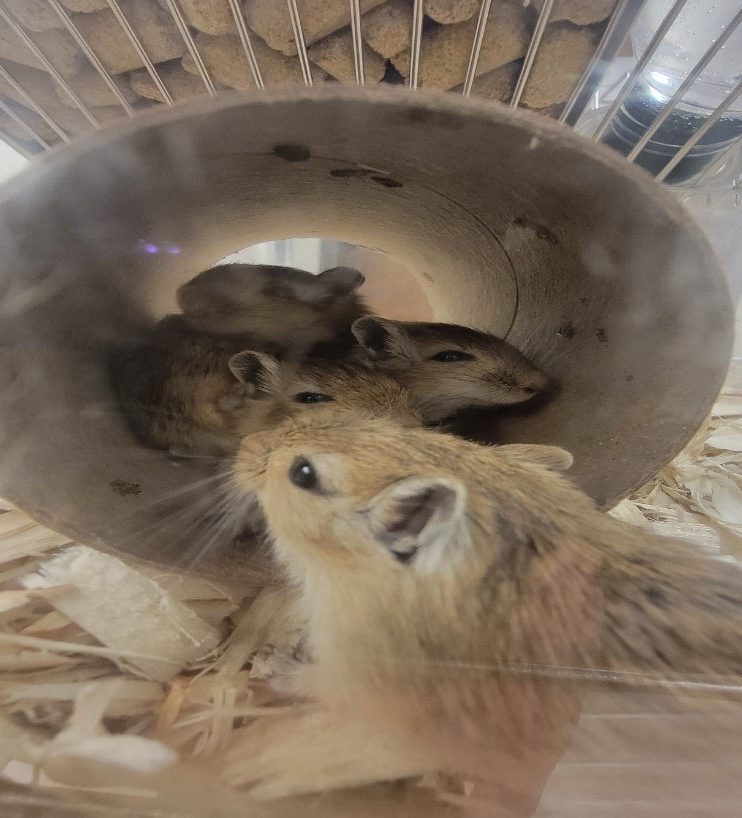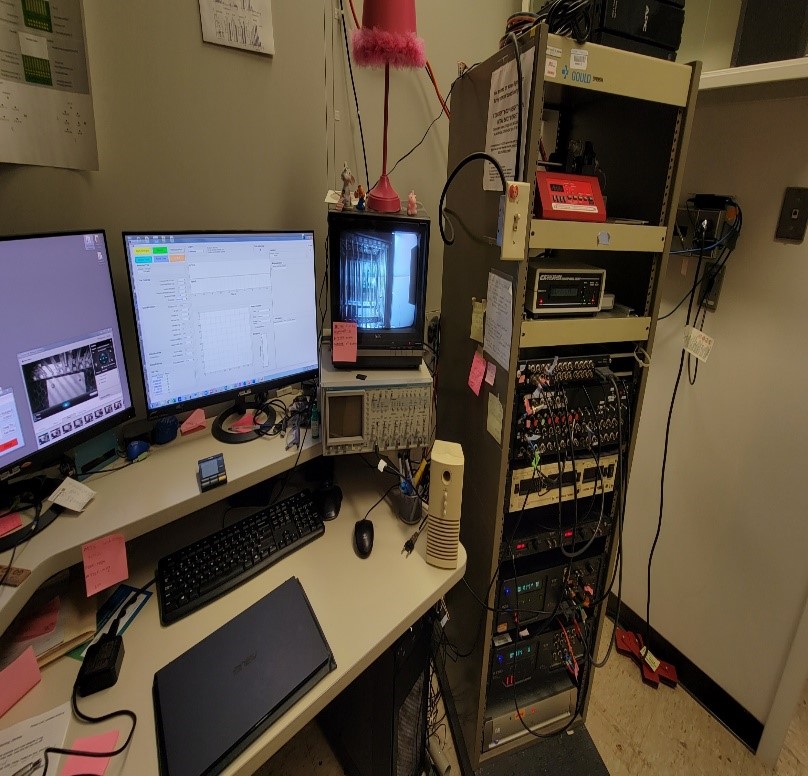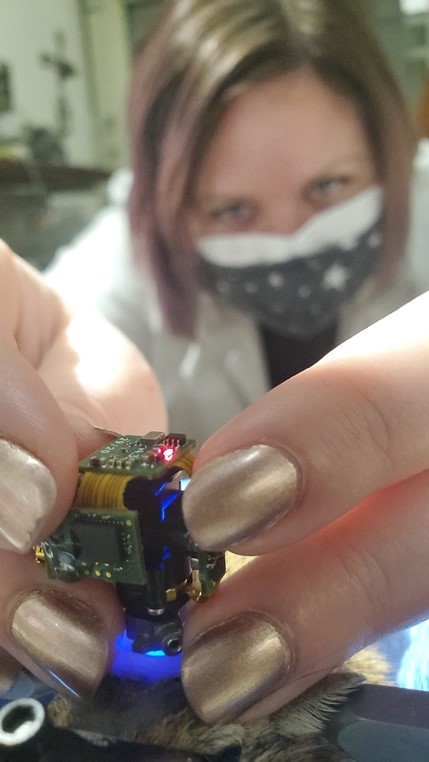[Past Projects]
Merri Rosen PhD, Kate Hardy MS, and Matthew Sunthimer BS


- Background: Auditory perceptual problems from ELS and hearing loss may arise from changes in certain molecules that determine how neural circuits are wired during development. Measuring these elements will clarify whether deficits from ELS and hearing loss arise through similar or disparate mechanisms.
- Objectives: To investigate changes in specific molecular markers within the auditory pathway across development. These changes are indicative of alterations in functionality and plasticity across development.
- Methods: The effects of early stress and hearing loss on the brain will be identified using immunohistochemistry techniques which tag specific neuronal proteins with fluorescent markers. These markers can be visualized and quantified under a fluorescent microscope.

- Background: Historically, mice and rats have been primarily used in stress research. To study stress in an established animal model of hearing, we are developing a new model of stress in the Mongolian gerbil.
- Objective: To characterize the effects of the limited bedding model (LBM) on emotion, cognition, and auditory perception.
- Methods: Implementation of the LBM model uses video recordings of breeder cages in a bedding-scarce environment. A combination of behavior tracking software and manual hand scoring of recordings will be used to characterize the new model. Various biomarkers will be measured to quantify stress markers, such as blood corticosterone and body weight. Effects on anxiety and cognition will be measured by standardized behavioral tests. Deficits in auditory perception will be measured using operant conditioning to train animals to respond when they discriminate between behaviorally-relevant sounds.

- Background: Our lab is working to set up an optical Miniscope, which allows us to visualize neuronal activity across a population of cells in real time, in freely-moving behaving animals.
- Objectives: To contribute to getting this leading-edge technology set up in the lab.
- Methods: Various skills will be learned while working closely alongside a lab member.
- Receive training in experimental techniques used widely across research fields in biology and neuroscience
- Learn how to apply critical thinking to big problems in neuroscience
- Opportunity to join our lab as a PhD student or technician
Learn more about the Rosen lab.
